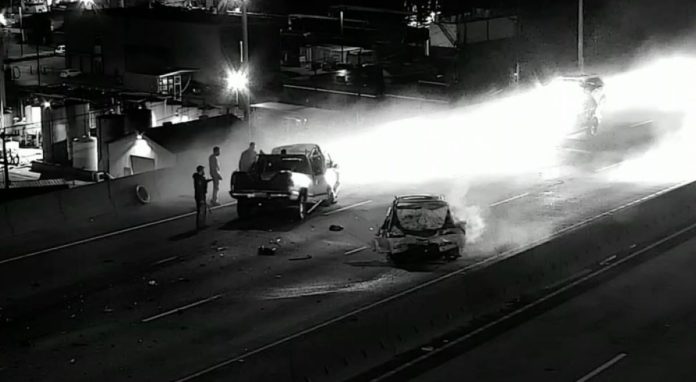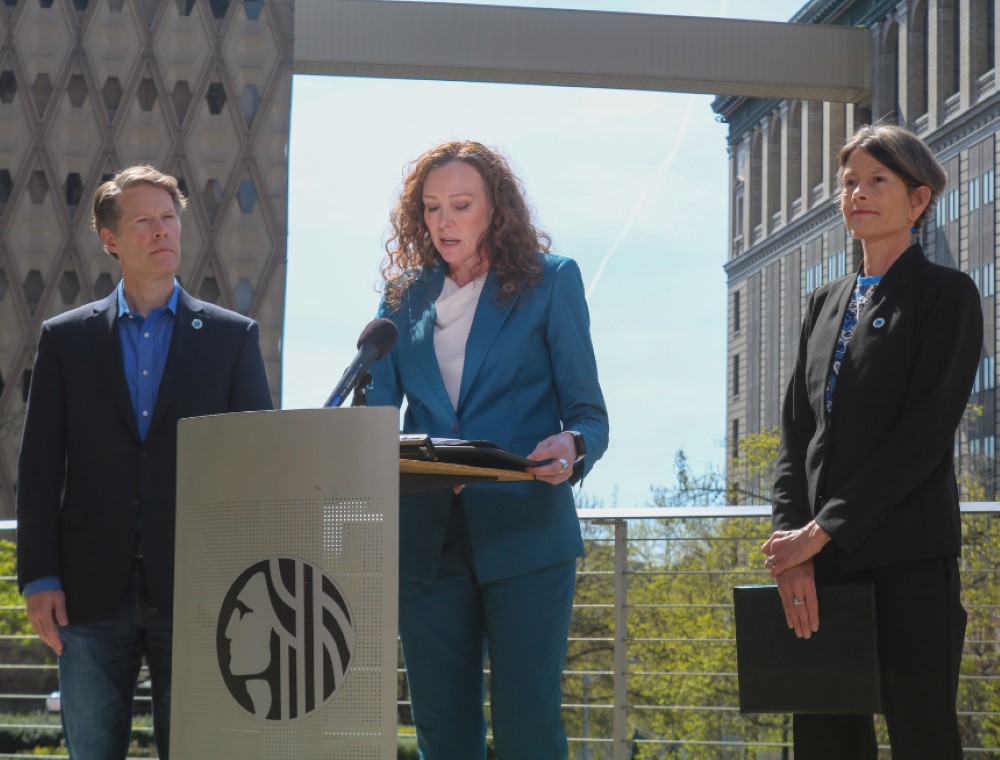
Just after noon on Thursday June 27th, a West Seattle motorist was swerving between lanes traveling south on State Route 509. He exited onto Myers Way S, turned his right turn signal on, then drifted into the northbound lanes near the intersection with Olson Place SW. A car traveling northbound on Myers Way tried to swerve away, but the northbound motorist was unable to avoid a head-on collision.
Fortunately, the northbound driver was not seriously injured and the West Seattle driver was treated for relatively minor injuries, based on the police report. Not surprisingly, the West Seattle driver admitted to having consumed a significant amount of alcohol.
This was not the driver’s first arrest for driving under the influence. In December of 2022, the same driver was arrested by a Seattle police officer after the officer observed a near miss head-on collision near the Home Depot in West Seattle. For about 18 months, the police report and arrest information was sitting around the City Attorney’s office and the City Attorney failed to bring a driving under the influence (DUI) case against the driver.
Had an attorney reviewed the file they would have discovered that the motorist had numerous prior DUIs and that he posted a significant risk of reoffending. This bureaucratic delay cleared the path for this motorist to get into a dangerous wreck, totaling another driver’s vehicle.
This is not an isolated incident. In another example, a Mukilteo man flipped a car near the Starbucks headquarters in SoDo after he had been drinking at a Mariners game in September of 2022. He was arrested and the police filed a report, but the city attorney’s office failed to bring charges against him until after a second DUI event on New Years Day 2024, 15 months later. In fact, the office of Seattle City Attorney Ann Davison has been sitting on hundreds of DUI cases for many months and in some cases years.
In 2018 and 2019, the last years of the Pete Holmes administration before the Covid pandemic, the median time between a DUI incident and the office filing a case was five days. In other words, in more than half the cases involving a drunk driver, a case would be filed against that person in less than one week. More than 950 cases a year were filed during that time. Some DUI cases took considerably longer to file, but the 2018 average time to prosecute was still just 88 days.
Fast forward to 2023, the median time between a DUI incident and the resulting filing was 85 days, nearly three months, and the average time it took to file a case was closer to a year. By comparison, fewer than 900 cases were filed in 2023. In other words, Davison’s office is taking more time to file fewer DUI cases.
In its defense, the City Attorney’s Office has blamed the state toxicology lab and the pandemic-era backlog inherited from Holmes for the increased time to prosecution and the City’s decision to decline some DUI prosecutions. The state toxicology lab has been slower to process reports since the start of the pandemic, but only about half of DUI cases require a state tox lab report, and the office is failing to prosecute DUI cases in a timely fashion even after receiving those reports.
In the case of the West Seattle man, the toxicology lab report had been returned to the city attorney’s office more than six months before the driver’s second offense. In the case involving the Mukilteo man, the lab report had been completed two and half months before the second offense. In other cases, the City Attorney is waiting more than a year after receiving the tox lab report.
When drivers are charged with a DUI, courts have a number of tools for decreasing the chance that the driver will drink and drive again. Courts can require drivers to wear a monitoring device so that the court knows if they are drinking, courts can require drivers to install an interlock device on their car, and, in more extreme cases, courts can take away the driver’s license, put drivers under house arrest, or require jail time. But none of this happens if the city attorney fails to file a case.
One of the biggest impacts a city attorney can have is their decision about how to allocate resources. Shortly after taking office, Davison promised to speed up filing decisions. She could do this by dedicating attorney time to prosecuting DUIs. Instead, she has focused resources on prosecuting protesters and picking fights with an elected judge.

The City Attorney’s office has now filed two cases against each of the drivers described above. The cases against the West Seattle driver have only just been filed, while the Mukilteo man has an interlock device installed in his car and he is otherwise in compliance with the court’s orders. But the city attorney’s failure to timely prosecute DUIs could result in tragedy.
For a decade, Seattle has had a “Vision Zero” goal of ending traffic deaths by 2030, but unfortunately traffic fatalities have risen in recent years and remain stubbornly high. Implementing safer street designs that prioritize safety over speed has been key for cities with successful Vision Zero campaigns, and Seattle has a long way to go on the front. But no matter how safe our streets are designed, drunk drivers will pose a risk of deadly collisions, and our legal system has to treat this as a serious issue.
While Davison has focused on property crime, such as graffiti artists and protesters, the reality is that drunk drivers inflict a ton of property damage. For example, a suspected drunk driver demolished two storefronts in Fremont in May and fled the scene, leaving their Tesla behind. Of course, even more precious than property are the lives at stake when intoxicated drivers take the wheel.
Our collective safety on the streets should not be put at risk by the city attorney’s failure to adequately resource DUI cases and prevent repeat offenses.

Rory O’Sullivan
Rory O’Sullivan is a founding partner at Washington Employment Benefits Advocates, a law firm that helps people with unemployment insurance claims. He has served as an Administrative Law Judge, as a pro tem judge with the Seattle Municipal Court, and as an adjunct professor at the University of Washington School of Law and Seattle University School of Law.

